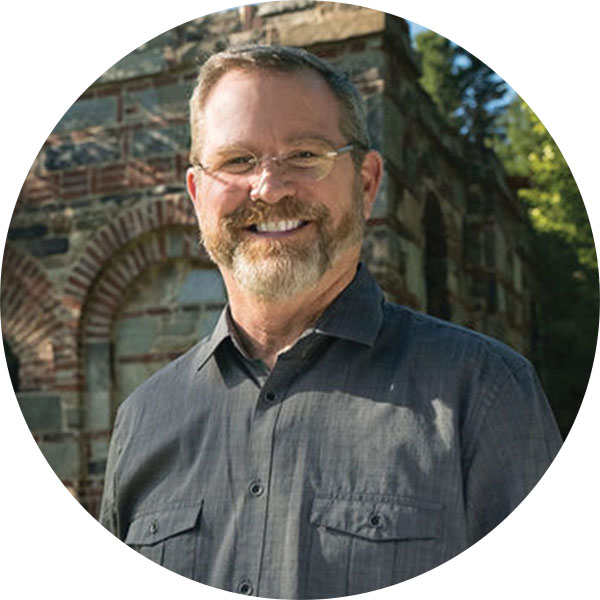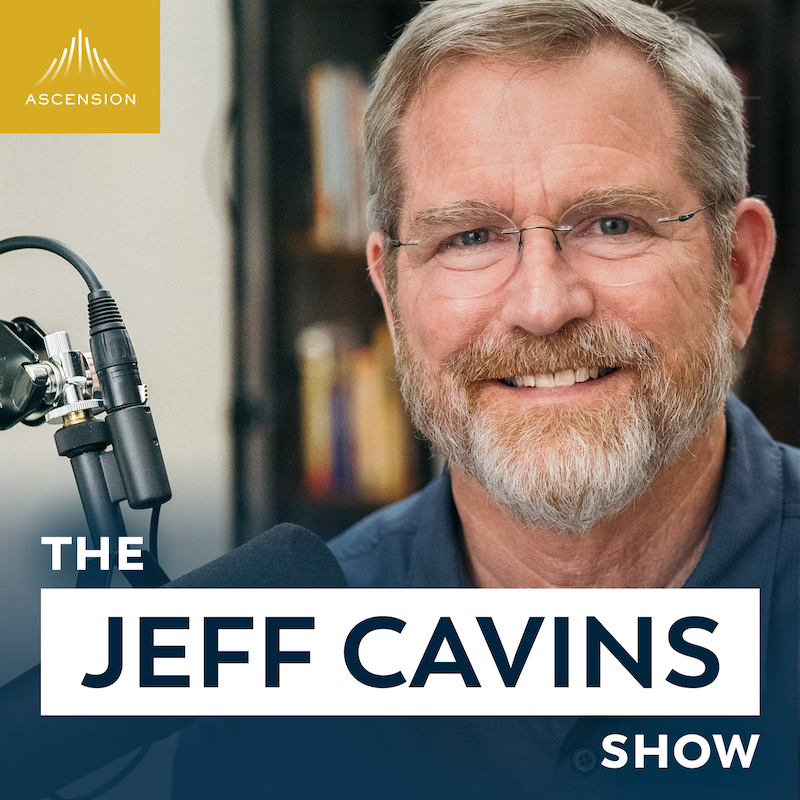Is it always wrong to lie? Why is the truth so important? Jeff Cavins addresses these questions in today’s podcast. Looking at Church teaching and Scripture, Jeff looks at the harm of dishonesty, the goodness of truth, and why, at times, it is right to hide the truth.
Snippet from the Show
Truthfulness guards what should be kept private.
Shownotes
“
Definition of a Lie
“A lie is an untruthful assertion. The speaker intends to cause belief in the truth of a statement that the speaker believes to be false. Hence, a lie involves an intention to deceive. The speaker also implicitly assures or promises the hearer that the statement that is made is true.”
Catechism of the Catholic Church, Paragraph 2482
A lie consists in speaking a falsehood with the intention of deceiving. The Lord denounces lying as the work of the devil.
Catechism of the Catholic Church, Paragraph 2468
Truth as uprightness in human action and speech is called truthfulness, sincerity, or candor. Truth or truthfulness is the virtue which consists in showing oneself true in deeds and truthful in words, and in guarding against duplicity, dissimulation, and hypocrisy.
Truth
1. We are different than all other people on earth in that we have been changed by the grace of God.
Catechism of the Catholic Church, Paragraph 2467
To his disciples, Jesus teaches the unconditional love of truth: “Let what you say be simply ‘Yes or No’.
Catechism of the Catholic Church, Paragraph 2467
The Church teaches that once we come to know the truth, we are then obligated to walk in it and allow it to direct the whole of our lives.
Catechism of the Catholic Church, Paragraph 2475
Christ’s disciples have “put on the new man, created after the likeness of God in true righteousness and holiness.” By “putting away falsehood,” they are to “put away all malice and all guile and insincerity and envy and all slander.
2. Truth Holds Society Together.
St. Thomas once said, “Men could not live with one another if there were not mutual confidence that they were being truthful to one another” (STh II-II,109,3 ad 1.).
Catechism of the Catholic Church, Paragraph 2469
It is the virtue of truth that gives others their just due to them. Truthfulness pays attention to what should be expressed and what ought to remain a kept secret. There is a time to talk and a time to keep quiet. “In justice, “as a matter of honor, one man owes it to another to manifest the truth.
Catechism of the Catholic Church, Paragraph 2468
Truth as uprightness in human action and speech is called truthfulness, sincerity, or candor. Truth or truthfulness is the virtue which consists in showing oneself true in deeds and truthful in words, and in guarding against duplicity, dissimulation, and hypocrisy.
3. Truth is expressed by walking in the light and rejecting the darkness.
Catechism of the Catholic Church, Paragraph 2470
The disciple of Christ consents to “live in the truth,” that is, in the simplicity of a life in conformity with the Lord’s example, abiding in his truth. “If we say we have fellowship with him while we walk in darkness, we lie and do not live according to the truth.
4. As Christians, we do not lie, as lying makes us false witnesses to Christ, who is the truth.
Catechism of the Catholic Church, Paragraph 2476
False witness and perjury. When it is made publicly, a statement contrary to the truth takes on a particular gravity. In court it becomes false witness When it is under oath, it is perjury. Acts such as these contribute to condemnation of the innocent, exoneration of the guilty, or the increased punishment of the accused. They gravely compromise the exercise of justice and the fairness of judicial decisions.
5. Truth walks hand in hand with prudence!
Lying
1. Boasting or Bragging is a form of lying.
Catechism of the Catholic Church, Paragraph 2481
Boasting or bragging is an offense against truth. So is irony aimed at disparaging someone by maliciously caricaturing some aspect of his behavior.
Catechism of the Catholic Church, Paragraph 2483
Lying is the most direct offense against the truth. To lie is to speak or act against the truth in order to lead someone into error. By injuring man’s relation to truth and to his neighbor, a lie offends against the fundamental relation of man and of his word to the Lord.
2. There are lies, and there are lies!
Catechism of the Catholic Church, Paragraph 2484
The gravity of a lie is measured against the nature of the truth it deforms, the circumstances, the intentions of the one who lies, and the harm suffered by its victims. If a lie in itself only constitutes a venial sin, it becomes mortal when it does grave injury to the virtues of justice and charity.
Catechism of the Catholic Church, Paragraph 2485
By its very nature, lying is to be condemned. It is a profanation of speech, whereas the purpose of speech is to communicate known truth to others. The deliberate intention of leading a neighbor into error by saying things contrary to the truth constitutes a failure in justice and charity. The culpability is greater when the intention of deceiving entails the risk of deadly consequences for those who are led astray.
Catechism of the Catholic Church, Paragraph 2486
Since it violates the virtue of truthfulness, a lie does real violence to another. It affects his ability to know, which is a condition of every judgment and decision. It contains the seed of discord and all consequent evils. Lying is destructive of society; it undermines trust among men and tears apart the fabric of social relationships.
Catechism of the Catholic Church, Paragraph 2487
Every offense committed against justice and truth entails the duty of reparation, even if its author has been forgiven. When it is impossible publicly to make reparation for a wrong, it must be made secretly. If someone who has suffered harm cannot be directly compensated, he must be given moral satisfaction in the name of charity. This duty of reparation also concerns offenses against another’s reputation. This reparation, moral and sometimes material, must be evaluated in terms of the extent of the damage inflicted. It obliges in conscience.
3. The right to the communication of the truth is not unconditional.
“Put simply, not everyone has a right to have the truth communicated to them. In other words, if a hypothetical Nazi asks if there are Jewish neighbors in my house, I could say, with good conscience, ;I have not brought anyone into my house,’ even if my wife or children did sneak them in. I know the truth. I don’t have to reveal it. That is not immoral. The act of not sharing the truth is not inherently sinful.”
Catechism of the Catholic Church, Paragraph 2488
The right to the communication of the truth is not unconditional. Everyone must conform his life to the Gospel precept of fraternal love. This requires us, in concrete situations, to judge whether or not it is appropriate to reveal the truth to someone who asks for it.
4. It is better to be silent than to tell the truth if it means the safety or privacy of others.
Catechism of the Catholic Church, Paragraph 2489
Charity and respect for the truth should dictate the response to every request for information or communication. The good and safety of others, respect for privacy, and the common good are sufficient reasons for being silent about what ought not to be known or for making use of discreet language.
Resources
“Is Lying Ever Right?” by Jeffery Mirus
Is It Ever Morally OK to Lie? by Matt Dunn
Resources
- Email us at thejeffcavinsshow@ascensionpress.com
- Text “jeffcavins” to 33-777 to subscribe and get added to Jeff’s shownotes email list
- New Podcast from Fr. Mark-Mary Ames, CFR: The Rosary in a Year
- Visit Jeff’s website at www.jeffcavins.com
- The Great Adventure Bible
- Listen to The Bible in a Year (with Fr. Mike Schmitz)
- Pilgrimages with Jeff
- Jeff’s Daily Gospel Reflections with Jonathan Roumie: www.hallow.com/jeffcavins
Ascension is pleased to offer our new and improved online bible study programs and sacramental preparation programs digitally to help you minister with flexibility. Go to ascensionpress.com to view all our offerings.

Meet Your Host: Jeff Cavins
Jeff Cavins is passionate about helping people understand Scripture and become disciples of Jesus Christ. Though he was born Catholic, Jeff went to Bible school and served as a protestant minister for twelve years before reverting to the Catholic Faith. Jeff then received his MA in Theology from Franciscan University of Steubenville. Since then, he has become a leading Catholic evangelist and author.
Jeff created The Bible Timeline learning system, which revolutionized Catholic Bible Study for millions of Catholics. Since its introduction, Jeff has developed The Great Adventure series of Bible studies to help people better understand Sacred Scripture and its meaning for their lives.




